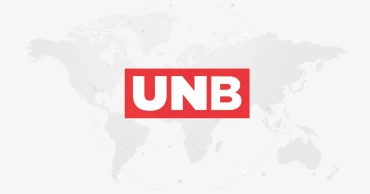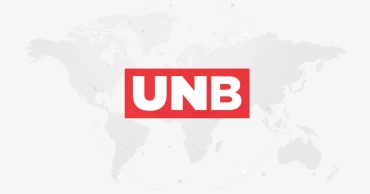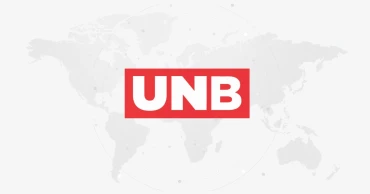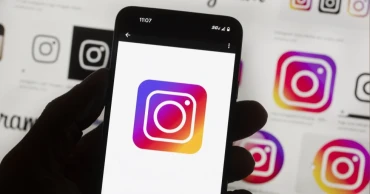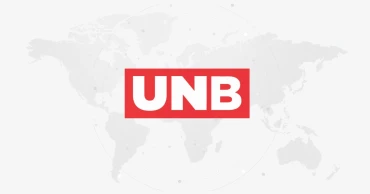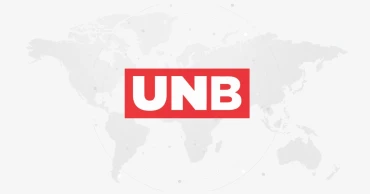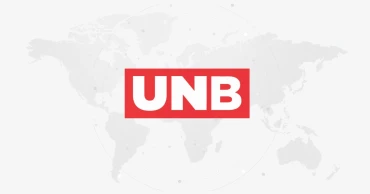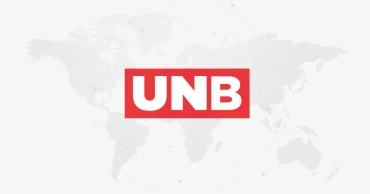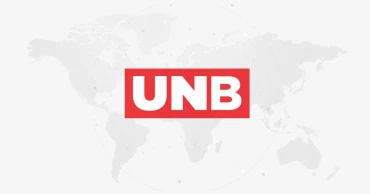Tech-News
China's latest EV is a 'connected' car from smart appliance maker Xiaomi
Xiaomi, a well-known maker of smart consumer electronics in China, is joining the country's booming but crowded market for electric cars.
The tech company will start taking orders for the SU7, a sporty four-door sedan, following a launch event with founder Lei Jun in Beijing on Thursday evening. Analysts think it will be priced in the 300,000 yuan ($40,000) range.
Government subsides have helped make China the world's largest market for electric vehicles, and a bevy of new makers are locked in fierce competition. Most of the industry's sales have been domestic, but Chinese makers are pushing into overseas markets with lower-priced models, posing a potential challenge to European, Japanese and American auto giants.
Lei is not bashful about that challenge, saying at an unveiling of the SU7 in December that Beijing-based Xiaomi aims to become one of the world's top five automakers in the next 15 to 20 years.
"I believe that one day, Xiaomi EVs will be a familiar sight on roads around the world,” he was quoted as saying in a company news release.
Xiaomi, founded in 2010, is entering an overcrowded market that analysts expect will undergo a shakeout in coming years, with weaker startups falling by the wayside.
The combined share of EVs and hybrids in China's auto sales is likely to reach 42% to 45% this year, up from 36% in 2023, according to Fitch Ratings. But the agency said in a December report that the competition could put pressure on automakers' short-term market share and profitability.
Known for its affordable smartphones, smart TVs and other devices, Xiaomi aims to capitalize on that technology by connecting its cars with its phones and home appliances in what it calls a “Human x Car x Home” ecosystem.
Tu Le, the founder of the Sino Auto Insights consultancy, said that Xiaomi is trying to close the loop by adding transportation to a product mix already integrated into its customers' personal and professional lives.
“The ability to seamlessly be a continuous part of someone’s life is the holy grail for tech companies,” he said in an emailed response. “You probably don’t know anyone in Beijing that doesn’t have at least one Xiaomi product, be it a mobile phone, computer, TV, (air) purifier, or tablet.”
As a newcomer to automaking, the company is making an educated guess that it can design and develop a car that will sell, he said. Given the sluggish Chinese economy and an ongoing EV price war, he predicted it would take a year or two to see if Xiaomi can adapt to correct any missteps and succeed.
“They are a technology company, so that’s their advantage but they need to reconcile that with drinking through a fire hose to learn how to be a tech company that builds cars,” Le said.
CreditSights, a financial research firm, said it expects Xiaomi's EV division to sell 60,000 vehicles in its first year and lose money for its first two years because of high marketing and promotion costs.
Chinese automakers trying to expand abroad face political headwinds.
The EU is investigating Chinese subsidies to determine if they give made-in-China EVs an unfair market advantage overseas. The U.S. announced an investigation last month into Chinese-made connected cars that it says could gather sensitive information about their drivers.
“China is determined to dominate the future of the auto market, including by using unfair practices,” President Joe Biden said when the U.S. investigation was announced. “China’s policies could flood our market with its vehicles, posing risks to our national security. I’m not going to let that happen on my watch.’′
China pushed back this week, filing a World Trade Organization complaint that alleges that U.S. subsides for electric vehicles discriminate against Chinese products.
The U.S. Defense Department put Xiaomi on a blacklist in 2021 over alleged links to China's military, but removed it a few months later after the company denied the links and sued the U.S. government.
China Media Group launches new Al productions
China Media Group (CMG) has embarked on an extraordinary journey towards merging Al technology with media, marking a significant milestone in innovative content creation.
CMG announced the launch of its latest Al productions on Wednesday.
The highlight of the launch event was the unveiling of "Chinese Mythology", the first multilingual microdrama entirely produced by AI.
This groundbreaking series represents a revolutionary shift in content creation, with artificial intelligence handling every aspect of production, including art design, storyboards, video production, dubbing, and soundtrack.
Furthermore, Al enables the overcoming of language barriers for audiences, a previously unparalleled achievement in the industry.
CMG also unveiled the first episode of the micro-drama series "AI Reads Classics", titled "Zhou Chu Eliminates Three Evils", further highlighting Al's storytelling capabilities.
The team completed the production of this episode in just 5 days, a remarkable accomplishment that underscores the efficiency Al brings to the process, which would typically require 3 to 4 months without Al.
Symphony Innova 30 Review: Budget-friendly, Powerful Camera Phone
Moreover, CGTN presented "The Rebirth of the Young Hero Nezha", an Al production that reinterprets ancient mythology using modern technology. This innovative approach is demonstrated by the Al production process, with the story resulting from training a large language model to deeply understand the classic plot from "Investiture of the Gods" and utilizing the AIGC tool to create adapted scripts.
The significance of Al in interpreting ancient myths lies in its ability to offer fresh perspectives on timeless narratives, capturing the collective dreams and aspirations of humanity.
This fusion of Al advancements with cultural heritage enriches comprehension of the past and inspires new forms of expression that seamlessly blend thought, art, and technology.
Despite the inherent imperfections in Al-generated content, the pursuit of excellence continues, driven by the belief in continuous improvement. This underscores the enduring truth that quality works deeply resonate with human emotions and concepts, regardless of the technological means employed.
Samsung Galaxy A55 5G Review: A Budget-friendly Version of Galaxy S24?
To address the risks and challenges posed by Al in the media industry, CMG has already developed and released the first set of regulations governing the use of artificial intelligence in Chinese media.
These regulations encompass crucial principles such as compliance with laws and regulations, maintaining direction, ensuring safety and controllability, safeguarding privacy respecting intellectual property rights, and promoting collaboration.
Special emphasis is placed on ensuring the authenticity of news and accurately portraying historical events, characters, and cultural nuances through Al productions.
Humane’s Ai Pin: Incredible Features of the ‘Smartphone Killer’
AI has already become a promising technology, demonstrating the convenience it can add to daily life, letting people automate different tasks and get a more satisfactory experience. With mobiles, computers, smartphones, cameras, glasses, rings, and watches, the world has seen a vast implementation of AI technology over the last few years, and the latest addition to the list is an Ai pin. A San Francisco-based tech innovating company, Humane Inc., has announced the soon-to-be-placed launch event, either at the end of March or in early April.
What is Humane’s Ai Pin?
A tiny, superlight, and lightweight wearable device, the Ai pin integrates AI technology, a projector, and numerous sensors to bring up a few cutting-edge functionalities, which can be intuitive or natural. However, where this brilliant AI Pin shines the most is its capacity to act like a smartphone, at a level of efficacy that people have termed it “a smartphone killer pin,” without even using a screen or a digital interface. The world is about to observe how a small peck of a pin can replace screen scrolling.
The pin turns on when touched and takes directives from the user's voice or hand gesture. It will take directive over voice command and run applications or provide information with the power of a sublime Ai with oral interaction capacity.
Read more: OPPO Air Glass 3: What's Special About It
Invention
The whole idea of the Ai Pin has taken birth from two extraordinary minds- Imran Chaudhri, CEO of Humane Inc., and his wife, Bethany Bongiorno. The couple said their prime goal was to free humanity from smartphone addiction. Soon, the AI Pin will hit the market under the banner of Humane, founded by a couple of ex-app executives, giving them a proper chance to achieve their goal.
With people bolstering the positive and limited sides of the device, Humane and several more big-name companies like Microsoft, OpenAi, and so on have visioned potentiality in the idea of an Ai device that users can clip to their clothes.
Imran Chaudhri and Bethany Bongiorno have combined a handful of modern technologies, such as app development, networking, cloud computing, databases, laser projections, etc., underneath their latest innovation. Each technology will work jointly with the rest and provide the ultimate result — communication with a user through projecting a laser diagram on the user’s palm and voice command.
Read more: Water Battery: What's Special About It
Specs and Features
Humane Ai has released a video exhibiting a few of the critical features of Ai Pin, only to shock users and show what’s coming.
The tiniest and the quickest source of info: The Pin wields a dynamic UI to generate a user interface optimized for the different types of information.
Communication: The tiny pin lets users take calls and send messages with voice commands. Users have to name the recipient and instruct the Ai pin to give phone calls or write and send texts.
Camera: The pin rooms dot cameras to take photos and record videos if necessary instruction is given. Users can record videos or take pictures by tapping a finger on the pin.
Read more: How to Block Ads on Android Phones in 2024
Media playback: Like all modern devices, the pin allows users to play different media files precisely and smoothly.
Reminders and Notes: An essential feature that every device with a user interface has, the ability to take notes and set reminders is installed in the Ai Pin. Users will be able to use this feature easily by commanding through voice.
Web search: The Ai Pin can look up any keyword or information on the web and provide the data asked by a user. On request, it can provide the data in an easy format.
Translation: The Ai pin will let users search words and sentences and find answers in more than 50 languages, which can be convenient during emergencies or travel.
Read more: Best and Worst Android OS Considering Bloatware in 2024
Productivity: Multiple productivity tools and software like After Effects and PhotoShop can be connected to Ai Pin to instruct different courses of action.
Image Recognition: Humane’s Ai Pin can scan images and provide critical information like how old the images are, what is in the image, and other information about the origin. The pin can do the same with objects, too.
Notification: Dealing with notifications will be systematic with the Ai Pin. It will store and summarize all the notifications in a place and inform the user when instructed without needing to open all individual apps.
Read more: What Is Google Gemini AI? How to Use the New Chatbot Model
How to get around Instagram’s new limits on political content
Instagram has started an automatic clamp down on the amount of political content appearing in its users' feeds, but there is a relatively quick and easy way to turn off the controls if you don't want to keep the limitations place.
As part of an initiative Instagram announced last month, the popular social media service owned by Meta Platforms has stopped “proactively” recommending political content posted on accounts that users don't choose to follow. To do that, Instagram has automatically set the “political content” control to “limit” on user accounts.
The limits also affect users with Threads accounts tied to their Instagram accounts.
The change has triggered an uproar among some users who feel as if Instagram is unnecessarily limiting political discourse in a year that pivotal elections are being held in U.S. and other countries.
Here's how to get around Instagram's political curbs in just a few steps.
1. To open up the political spigot again on Instagram, open up the app on your smartphone. Then tap the three-dash menu at the top right.
2. Navigate to “settings and privacy,” then choose "content preferences," then open the “Political content” menu.
3. Find and turn on the "Don't limit" option.
Once that is done, you should once again start to see posts relating to government, elections and other political matters shared from accounts that you don't follow flowing through your feed.
How to spot AI-generated deepfake images
AI fakery is quickly becoming one of the biggest problems confronting us online. Deceptive pictures, videos and audio are proliferating as a result of the rise and misuse of generative artificial intelligence tools.
With AI deepfakes cropping up almost every day, depicting everyone from Taylor Swift to Donald Trump, it’s getting harder to tell what’s real from what’s not. Video and image generators like DALL-E, Midjourney and OpenAI’s Sora make it easy for people without any technical skills to create deepfakes — just type a request and the system spits it out.
Infinix Hot 40 Review: Is It A Good Deal Under BDT 18000?
These fake images might seem harmless. But they can be used to carry out scams and identity theft or propaganda and election manipulation.
Here is how to avoid being duped by deepfakes:
HOW TO SPOT A DEEPFAKEIn the early days of deepfakes, the technology was far from perfect and often left telltale signs of manipulation. Fact-checkers have pointed out images with obvious errors, like hands with six fingers or eyeglasses that have differently shaped lenses.
But as AI has improved, it has become a lot harder. Some widely shared advice — such as looking for unnatural blinking patterns among people in deepfake videos — no longer holds, said Henry Ajder, founder of consulting firm Latent Space Advisory and a leading expert in generative AI.
Still, there are some things to look for, he said.
A lot of AI deepfake photos, especially of people, have an electronic sheen to them, “an aesthetic sort of smoothing effect” that leaves skin “looking incredibly polished,” Ajder said.
He warned, however, that creative prompting can sometimes eliminate this and many other signs of AI manipulation.
Check the consistency of shadows and lighting. Often the subject is in clear focus and appears convincingly lifelike but elements in the backdrop might not be so realistic or polished.
LOOK AT THE FACESFace-swapping is one of the most common deepfake methods. Experts advise looking closely at the edges of the face. Does the facial skin tone match the rest of the head or the body? Are the edges of the face sharp or blurry?
If you suspect video of a person speaking has been doctored, look at their mouth. Do their lip movements match the audio perfectly?
Ajder suggests looking at the teeth. Are they clear, or are they blurry and somehow not consistent with how they look in real life?
Bill that could ban TikTok passed in the US House of Representatives
Cybersecurity company Norton says algorithms might not be sophisticated enough yet to generate individual teeth, so a lack of outlines for individual teeth could be a clue.
THINK ABOUT THE BIGGER PICTURESometimes the context matters. Take a beat to consider whether what you’re seeing is plausible.
The Poynter journalism website advises that if you see a public figure doing something that seems “exaggerated, unrealistic or not in character,” it could be a deepfake.
For example, would the pope really be wearing a luxury puffer jacket, as depicted by a notorious fake photo? If he did, wouldn’t there be additional photos or videos published by legitimate sources?
USING AI TO FIND THE FAKESAnother approach is to use AI to fight AI.
Microsoft has developed an authenticator tool that can analyze photos or videos to give a confidence score on whether it’s been manipulated. Chipmaker Intel’s FakeCatcher uses algorithms to analyze an image’s pixels to determine if it’s real or fake.
There are tools online that promise to sniff out fakes if you upload a file or paste a link to the suspicious material. But some, like Microsoft’s authenticator, are only available to selected partners and not the public. That’s because researchers don’t want to tip off bad actors and give them a bigger edge in the deepfake arms race.
Open access to detection tools could also give people the impression they are “godlike technologies that can outsource the critical thinking for us” when instead we need to be aware of their limitations, Ajder said.
THE HURDLES TO FINDING FAKESAll this being said, artificial intelligence has been advancing with breakneck speed and AI models are being trained on internet data to produce increasingly higher-quality content with fewer flaws.
That means there’s no guarantee this advice will still be valid even a year from now.
Experts say it might even be dangerous to put the burden on ordinary people to become digital Sherlocks because it could give them a false sense of confidence as it becomes increasingly difficult, even for trained eyes, to spot deepfakes.
AI supercharges threat of disinformation in a big year for elections globally
Artificial intelligence is supercharging the threat of election disinformation worldwide, making it easy for anyone with a smartphone and a devious imagination to create fake – but convincing – content aimed at fooling voters.
It marks a quantum leap from a few years ago, when creating phony photos, videos or audio clips required teams of people with time, technical skill and money. Now, using free and low-cost generative artificial intelligence services from companies like Google and OpenAI, anyone can create high-quality “deepfakes” with just a simple text prompt.
A wave of AI deepfakes tied to elections in Europe and Asia has coursed through social media for months, serving as a warning for more than 50 countries heading to the polls this year.
“You don’t need to look far to see some people ... being clearly confused as to whether something is real or not,” said Henry Ajder, a leading expert in generative AI based in Cambridge, England.
The question is no longer whether AI deepfakes could affect elections, but how influential they will be, said Ajder, who runs a consulting firm called Latent Space Advisory.
As the U.S. presidential race heats up, FBI Director Christopher Wray recently warned about the growing threat, saying generative AI makes it easy for "foreign adversaries to engage in malign influence.”
With AI deepfakes, a candidate’s image can be smeared, or softened. Voters can be steered toward or away from candidates — or even to avoid the polls altogether. But perhaps the greatest threat to democracy, experts say, is that a surge of AI deepfakes could erode the public’s trust in what they see and hear.
Some recent examples of AI deepfakes include:
— A video of Moldova's pro-Western president throwing her support behind a political party friendly to Russia.
— Audio clips of Slovakia's liberal party leader discussing vote rigging and raising the price of beer.
— A video of an opposition lawmaker in Bangladesh — a conservative Muslim majority nation — wearing a bikini.
The novelty and sophistication of the technology makes it hard to track who is behind AI deepfakes. Experts say governments and companies are not yet capable of stopping the deluge, nor are they moving fast enough to solve the problem.
As the technology improves, “definitive answers about a lot of the fake content are going to be hard to come by,” Ajder said.
ERODING TRUSTSome AI deepfakes aim to sow doubt about candidates' allegiances.
In Moldova, an Eastern European country bordering Ukraine, pro-Western President Maia Sandu has been a frequent target. One AI deepfake that circulated shortly before local elections depicted her endorsing a Russian-friendly party and announcing plans to resign.
World’s First Transparent Laptop by Lenovo: A Peek into The Future
Officials in Moldova believe the Russian government is behind the activity. With presidential elections this year, the deepfakes aim “to erode trust in our electoral process, candidates and institutions — but also to erode trust between people,” said Olga Rosca, an adviser to Sandu. The Russian government declined to comment for this story.
China has also been accused of weaponizing generative AI for political purposes.
In Taiwan, a self-ruled island that China claims as its own, an AI deepfake gained attention earlier this year by stirring concerns about U.S. interference in local politics.
The fake clip circulating on TikTok showed U.S. Rep. Rob Wittman, vice chairman of the U.S. House Armed Services Committee, promising stronger U.S. military support for Taiwan if the incumbent party's candidates were elected in January.
Wittman blamed the Chinese Communist Party for trying to meddle in Taiwanese politics, saying it uses TikTok — a Chinese-owned company — to spread “propaganda.”
A spokesperson for the Chinese foreign ministry, Wang Wenbin, said his government doesn't comment on fake videos and that it opposes interference in other countries' internal affairs. The Taiwan election, he stressed, “is a local affair of China.”
BLURRING REALITYAudio-only deepfakes are especially hard to verify because, unlike photos and videos, they lack telltale signs of manipulated content.
In Slovakia, another country overshadowed by Russian influence, audio clips resembling the voice of the liberal party chief were shared widely on social media just days before parliamentary elections. The clips purportedly captured him talking about hiking beer prices and rigging the vote.
It's understandable that voters might fall for the deception, Ajder said, because humans are “much more used to judging with our eyes than with our ears.”
In the U.S., robocalls impersonating U.S. President Joe Biden urged voters in New Hampshire to abstain from voting in January's primary election. The calls were later traced to a political consultant who said he was trying to publicize the dangers of AI deepfakes.
In poorer countries, where media literacy lags, even low-quality AI fakes can be effective.
Such was the case last year in Bangladesh, where opposition lawmaker Rumeen Farhana — a vocal critic of the ruling party — was falsely depicted wearing a bikini. The viral video sparked outrage in the conservative, majority-Muslim nation.
“They trust whatever they see on Facebook,” Farhana said.
Experts are particularly concerned about upcoming elections in India, the world’s largest democracy and where social media platforms are breeding grounds for disinformation.
A CHALLENGE TO DEMOCRACYSome political campaigns are using generative AI to bolster their candidate’s image.
In Indonesia, the team that ran the presidential campaign of Prabowo Subianto deployed a simple mobile app to build a deeper connection with supporters across the vast island nation. The app enabled voters to upload photos and make AI-generated images of themselves with Subianto.
As the types of AI deepfakes multiply, authorities around the world are scrambling to come up with guardrails.
The European Union already requires social media platforms to cut the risk of spreading disinformation or “election manipulation.” It will mandate special labeling of AI deepfakes starting next year, too late for the EU's parliamentary elections in June. Still, the rest of the world is a lot further behind.
Bill that could ban TikTok passed in the US House of Representatives
The world's biggest tech companies recently — and voluntarily — signed a pact to prevent AI tools from disrupting elections. For example, the company that owns Instagram and Facebook has said it will start labeling deepfakes that appear on its platforms.
But deepfakes are harder to rein in on apps like the Telegram chat service, which did not sign the voluntary pact and uses encrypted chats that can be difficult to monitor.
Some experts worry that efforts to rein in AI deepfakes could have unintended consequences.
Well-meaning governments or companies might trample on the sometimes “very thin” line between political commentary and an “illegitimate attempt to smear a candidate,” said Tim Harper, a senior policy analyst at the Center for Democracy and Technology in Washington.
Major generative AI services have rules to limit political disinformation. But experts say it remains too easy to outwit the platforms' restrictions or use alternative services that don't have the same safeguards.
Even without bad intentions, the rising use of AI is problematic. Many popular AI-powered chatbots are still spitting out false and misleading information that threatens to disenfranchise voters.
And software isn't the only threat. Candidates could try to deceive voters by claiming that real events portraying them in an unfavorable light were manufactured by AI.
“A world in which everything is suspect — and so everyone gets to choose what they believe — is also a world that’s really challenging for a flourishing democracy,” said Lisa Reppell, a researcher at the International Foundation for Electoral Systems in Arlington, Virginia.
World’s First Transparent Laptop by Lenovo: A Peek into The Future
Lenovo is one of the most well-known brands when it comes to design and innovation. It’s the same company that brought the world’s first foldable laptop with the ThinkPad X1 Fold. This year, Lenovo took things a step further by unveiling the world’s first transparent laptop at the MWC (Mobile World Congress) 2024. Here’s what we know so far.
The Story So Far
This year, the trend seems to be transparent. Earlier, at the CES 2024, both Samsung and LG showcased transparent televisions as the future of in-house entertainment systems. LG went a notch up with a retractable black screen for a more ‘normalized’ viewing experience.
Keeping up with that, Lenovo brought a proof-of-concept product Project Crystal in the CES 2024. It was a Concept Laptop with a transparent display.
Read more: Samsung Galaxy Ring: Specs, Features, and Probable Release Date
The completely transparent laptop, called ThinkBook, was finally displayed by Lenovo at the MWS2024 event in Barcelona.
Making Transparent Laptop a Reality
Tom Butler, the executive director of Lenovo’s Worldwide Product Management division talked in detail about the new transparent laptop. The 17.3-inch laptop uses micro-LED technology to achieve the transparent look of the ThinkBook. Lenovo incorporated a 55% transparency on the display to make it optimally visible for both indoor and outdoor use. The display can churn out up to 1000 nits with the screen resolution standing at 720P.
Lenovo talked about the limitations of OLED and why they had to opt for a micro-LED solution. With the currently available tech, the R&D team couldn't push beyond 480P with an OLED panel. There’s also the limitation of transparency as the laptop cannot incorporate a black screen for absolute contrast.
Read more: OPPO Air Glass 3: What's Special About It
A Paradigm Shift For the Future
With its current set of limitations, it is clear that Lenovo isn’t planning to release the ThinkBook as a mainstream laptop. Instead, the proof-of-concept product would see its feature trickle down to the mainstream product lineup over the next 5 years.
New AI tools can record your medical appointment or draft a message from your doctor
Don’t be surprised if your doctors start writing you overly friendly messages. They could be getting some help from artificial intelligence.
New AI tools are helping doctors communicate with their patients, some by answering messages and others by taking notes during exams. It's been 15 months since OpenAI released ChatGPT. Already thousands of doctors are using similar products based on large language models. One company says its tool works in 14 languages.
AI saves doctors time and prevents burnout, enthusiasts say. It also shakes up the doctor-patient relationship, raising questions of trust, transparency, privacy and the future of human connection.
A look at how new AI tools affect patients:
IS MY DOCTOR USING AI?
In recent years, medical devices with machine learning have been doing things like reading mammograms, diagnosing eye disease and detecting heart problems. What's new is generative AI's ability to respond to complex instructions by predicting language.
Your next check-up could be recorded by an AI-powered smartphone app that listens, documents and instantly organizes everything into a note you can read later. The tool also can mean more money for the doctor’s employer because it won’t forget details that legitimately could be billed to insurance.
Your doctor should ask for your consent before using the tool. You might also see some new wording in the forms you sign at the doctor’s office.
Other AI tools could be helping your doctor draft a message, but you might never know it.
“Your physician might tell you that they’re using it, or they might not tell you,” said Cait DesRoches, director of OpenNotes, a Boston-based group working for transparent communication between doctors and patients. Some health systems encourage disclosure, and some don’t.
Doctors or nurses must approve the AI-generated messages before sending them. In one Colorado health system, such messages contain a sentence disclosing they were automatically generated. But doctors can delete that line.
“It sounded exactly like him. It was remarkable,” said patient Tom Detner, 70, of Denver, who recently received an AI-generated message that began: “Hello, Tom, I’m glad to hear that your neck pain is improving. It’s important to listen to your body.” The message ended with “Take care” and a disclosure that it had been automatically generated and edited by his doctor.
Detner said he was glad for the transparency. “Full disclosure is very important,” he said.
WILL AI MAKE MISTAKES?
Large language models can misinterpret input or even fabricate inaccurate responses, an effect called hallucination. The new tools have internal guardrails to try to prevent inaccuracies from reaching patients — or landing in electronic health records.
“You don’t want those fake things entering the clinical notes,” said Dr. Alistair Erskine, who leads digital innovations for Georgia-based Emory Healthcare, where hundreds of doctors are using a product from Abridge to document patient visits.
The tool runs the doctor-patient conversation across several large language models and eliminates weird ideas, Erskine said. “It’s a way of engineering out hallucinations.”
Ultimately, “the doctor is the most important guardrail,” said Abridge CEO Dr. Shiv Rao. As doctors review AI-generated notes, they can click on any word and listen to the specific segment of the patient’s visit to check accuracy.
In Buffalo, New York, a different AI tool misheard Dr. Lauren Bruckner when she told a teenage cancer patient it was a good thing she didn't have an allergy to sulfa drugs. The AI-generated note said, “Allergies: Sulfa.”
The tool “totally misunderstood the conversation,” Bruckner said. “That doesn’t happen often, but clearly that's a problem.”
WHAT ABOUT THE HUMAN TOUCH?
AI tools can be prompted to be friendly, empathetic and informative.
But they can get carried away. In Colorado, a patient with a runny nose was alarmed to learn from an AI-generated message that the problem could be a brain fluid leak. (It wasn’t.) A nurse hadn’t proofread carefully and mistakenly sent the message.
“At times, it’s an astounding help and at times it’s of no help at all,” said Dr. C.T. Lin, who leads technology innovations at Colorado-based UC Health, where about 250 doctors and staff use a Microsoft AI tool to write the first draft of messages to patients. The messages are delivered through Epic’s patient portal.
The tool had to be taught about a new RSV vaccine because it was drafting messages saying there was no such thing. But with routine advice — like rest, ice, compression and elevation for an ankle sprain — “it’s beautiful for that,” Linn said.
Also on the plus side, doctors using AI are no longer tied to their computers during medical appointments. They can make eye contact with their patients because the AI tool records the exam.
The tool needs audible words, so doctors are learning to explain things aloud, said Dr. Robert Bart, chief medical information officer at Pittsburgh-based UPMC. A doctor might say: “I am currently examining the right elbow. It is quite swollen. It feels like there’s fluid in the right elbow.”
Talking through the exam for the benefit of the AI tool can also help patients understand what's going on, Bart said. “I’ve been in an examination where you hear the hemming and hawing while the physician is doing it. And I’m always wondering, ‘Well, what does that mean?’”
WHAT ABOUT PRIVACY?
U.S. law requires health care systems to get assurances from business associates that they will safeguard protected health information, and the companies could face investigation and fines from the Department of Health and Human Services if they mess up.
Doctors interviewed for this article said they feel confident in the data security of the new products and that the information will not be sold.
Information shared with the new tools is used to improve them, so that could add to the risk of a health care data breach.
Dr. Lance Owens is chief medical information officer at the University of Michigan Health-West, where 265 doctors, physician assistants and nurse practitioners are using a Microsoft tool to document patient exams. He believes patient data is being protected.
“When they tell us that our data is safe and secure and segregated, we believe that,” Owens said.
Samsung Galaxy Ring: Specs, Features, and Probable Release Date
Samsung unexpectedly revealed a new product, called the Galaxy Ring, alongside its Galaxy S24 smartphone series. However, there was very little information available about this “smart ring”, except for the expected release later this year. Recently, at the Mobile World Congress in Barcelona, the company hosted a discussion to provide some additional details about this new product category.
What is the Samsung Galaxy Ring?
Samsung is marketing the Galaxy Ring as a device suited for those who desire the perks of a smartwatch without being overwhelmed by excessive data. Since the smart ring doesn't have a screen for interaction, it's believed that users will find it easier to adopt and wear one. They can still enjoy health tracking features without having to learn a new interface.
However, it's important to note that the ring isn't intended to replace Samsung's Galaxy Watch series. According to Hon Pak, vice president of Samsung's Digital Health Team, individuals will have the option to wear both a Galaxy Watch6 and the Galaxy Ring simultaneously, allowing them to access more comprehensive health data.
Read more: Best and Worst Android OS Considering Bloatware in 2024
Invention
The Galaxy Ring from Samsung represents a significant innovation in wearable technology, particularly in the realm of digital health. Unlike traditional smartwatches, the Galaxy Ring focuses on essential health tracking without the need for screen interaction, offering a minimalist and user-friendly experience. With its lightweight design and customizable options, including various sizes and finishes, it sets a new standard for comfort and personalization.
Equipped with advanced sensors for heart rate monitoring and step counting, the Galaxy Smart Ring promises to deliver comprehensive health insights in a sleek and convenient form factor. As anticipation grows for its release, it's poised to revolutionise how we approach personal health monitoring.
Read more: Android TV Box: Buyer’s Guide and Price Ranges in Bangladesh
10 Best Free Apps for Ramadan on Android and iOS
Fasting for the entire month during the holy month of Ramadan is essentially a hallmark of the Muslim lifestyle. A systematic plan of action is necessary to maintain health while carrying out different religious activities like fasting, prayers, recitation of holy Quran etc effectively. Nowadays, various Ramadan apps can help to track religious activities. Let's delve into the top 10 free mobile apps for Ramadan available on both Android and iOS platforms.
10 Useful Ramadan Related Apps for Free Downloads on Smartphones
Al Quran (Tafsir and By Word)
Developed by Greentech Apps Foundation on August 26, 2016, this app serves as a dedicated platform for studying and memorizing the Quran. It includes translations of every word in more than 35 languages, including Bengali, and offers access to over 70 tafsir. Users can listen to Quran recitations by more than 30 renowned reciters.
This app provides statistics on previously completed verses during each recitation. Its self-contained library is made accessible through the verse bookmark feature.
All these features are available without any cost and free from all sorts of in-app advertising.
The current version is 1.26.1, last updated on February 22, 2024. It requires a smartphone OS (operating system) of at least Android 5 to run, and the Android app size is 21 MB. It has been downloaded over 5 million times and holds an average rating of 4.8 stars from 28,400 reviewers.
The iOS version is 26.2 MB in size and has hit a pristine 4.9 stars after 348 reviews. It is compatible with iOS 14.2 or later versions.
Read more: Best Quran Apps for Android: Read the Holy Book Online
Tarteel: Quran Memorization
When it comes to reciting the Quran directly from a mobile screen, Tarteel is the best. It utilizes AI to track the reciter's voice, displaying the corresponding verse on the screen with each recitation. It is free to use and does not contain any ads. However, there is a premium version, which offers various advanced features such as error correction in reciting.
Released on January 31, 2016, Tarteel is crafted by Tarteel Inc. The mobile app requires 108 to 120 MB of storage, depending on different Android phones, and the OS must be Android 5 or higher. The latest version is 5.38.1, updated on March 6, 2024. With over 1 million downloads, it has been rated 4.7 stars with 38,000 reviews contributing.
The iOS version’s size registers at 198.7 MB and requires at least iOS 13.4 to run. It has reached a 4.7-star rating from more than 2,500 reviewers.
Read more: Free English-Speaking Mobile Apps for the Non-native Speakers
Quran Majeed – Ramadan 2024
The most appealing aspect of this app, developed by Pakdata, is its user-friendly interface. Users can freely repeat verses, pause, and adjust speed while reading or memorizing the Quran. Additionally, the app features a Qibla direction compass, live streaming from Makkah and Madinah, a Hijri calendar, and a Quranic engagement meter.
Created on August 18, 2014, and last updated on March 8, 2024, the app's current version is 7.3.2, requiring Android 5 or higher to run. With a storage capacity ranging from 54 MB to 120 MB, it has been downloaded over 10 million times and holds a score of 4.7 stars from 793,000 reviews.
The iOS version holds a score of 4.8 stars from over 200,000 ratings. It consumes 137.5 MB of space and is compatible with iOS 12 or later versions.
Read more: 10 Best Audiobook Apps for Android, iOS
